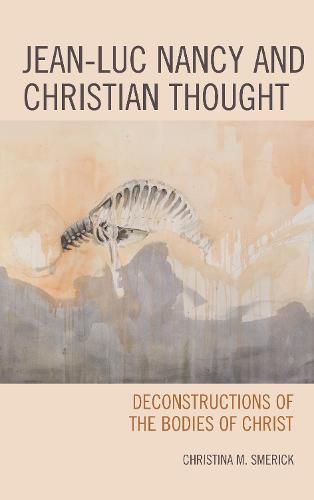Readings Newsletter
Become a Readings Member to make your shopping experience even easier.
Sign in or sign up for free!
You’re not far away from qualifying for FREE standard shipping within Australia
You’ve qualified for FREE standard shipping within Australia
The cart is loading…






Jean-Luc Nancy and Christian Thought explores Nancy’s deconstruction of Christianity via the various bodies of Christ that accumulate in Christian doctrine, specifically the incarnated body, the resurrected body, and the body of Christ the church. The work ties Nancy’s deconstruction to the writings of the early church, demonstrating that the seeds of auto-deconstruction are indeed sown in the doctrines of Western Christianity. It then provides brief sketches of current theological works that touch upon similar deconstructive themes. Thus, the work aims to flesh out Nancy’s deconstruction for the non-theologian, tying his complex scans of Christian thought to early patristics, and also aims to help theologians unfamiliar with deconstruction or with Nancy’s work recognize the value of the deconstructive method for unpacking Christian doctrine and practice. This book will be of interest to philosophers of religion, hermeneutics, and post-Frankfort School critical theory, and theologians interested in current French philosophy of religion.
$9.00 standard shipping within Australia
FREE standard shipping within Australia for orders over $100.00
Express & International shipping calculated at checkout
Jean-Luc Nancy and Christian Thought explores Nancy’s deconstruction of Christianity via the various bodies of Christ that accumulate in Christian doctrine, specifically the incarnated body, the resurrected body, and the body of Christ the church. The work ties Nancy’s deconstruction to the writings of the early church, demonstrating that the seeds of auto-deconstruction are indeed sown in the doctrines of Western Christianity. It then provides brief sketches of current theological works that touch upon similar deconstructive themes. Thus, the work aims to flesh out Nancy’s deconstruction for the non-theologian, tying his complex scans of Christian thought to early patristics, and also aims to help theologians unfamiliar with deconstruction or with Nancy’s work recognize the value of the deconstructive method for unpacking Christian doctrine and practice. This book will be of interest to philosophers of religion, hermeneutics, and post-Frankfort School critical theory, and theologians interested in current French philosophy of religion.